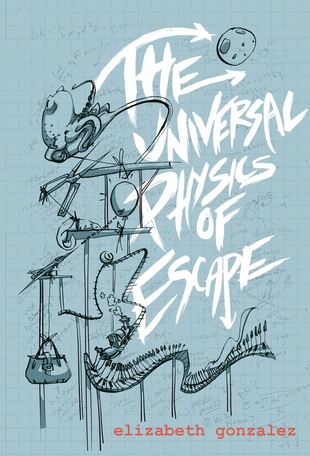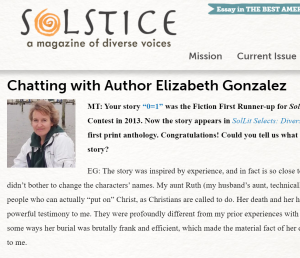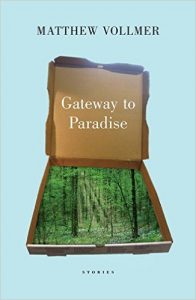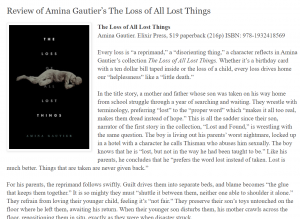Winner of the 2015 Press 53 Award for Short Fiction, The Universal Physics of Escape bears witness to the dissolution of all things. Whether they’re resurrecting a rusted-out steam engine, playing sonatas for a ghost, or bonding with a pet shop octopus, the characters in this collection share a common dilemma: the need to preserve what cannot be saved. Stories in the collection have earned the Tusculum Review Prize and the Howard Frank Mosher Prize.
“Elizabeth Gonzalez is a master of dialogue, an artist at creating vivid settings, and an encyclopedia of knowledge about the world surrounding her characters. These stories uncover truths that make the reading experience memorable and each story remarkable.” — Kevin Morgan Watson, Editor, Press 53
“I loved every story in this collection by Elizabeth Gonzalez. With quiet authority, in prose of luminous clarity, she travels fluidly between the natural world and her characters’ secret interiors. These science-inflected tales include octopus escape artists, ‘reclamation specialists,’ cracked geodes and the intractable laws of physics. Out of a bedrock of fact, Gonzalez raises a lush set of questions about our mysterious species: why do we stay, when do we go, how do we build our selves and our homes?” — Karen Russell, author of Pulitzer finalist Swamplandia!
“Many of these characters are grappling with their place in the world, especially in comparison to the vast universe, the long stretch of history, and the finality of death. . . . This self-awareness is present not only in the characters, but in the stories as a whole. They zoom in and out from the micro to the macro, from the mundane to the bizarre, from the interior thoughts of a character to a law of physics. The result is stories that feel bigger than themselves.” — Celia Laskey, Necessary Fiction – Read the full review.
“The stories vary widely in length, but all use their space to quietly build towards a final excavation, an unearthing of sentiments that are often too complicated to express in any other way. Bats and moths, eels and octopuses, geodes, black holes, birds and mathematical ratios: all are used not as symbols, but as voices. As a language for navigating the often terrifying loneliness of trying to find your place and your relationship to others in the world.” – Steph Post, author of A Tree Born Crooked – Read the full review.
A lot of the characters in this story collection are coming to terms with themselves, dealing with loss or change, and finding their place in the world. Gonzalez has an ear for dialogue and her settings are vividly rendered whether they are rural Pennsylvania or wintery Michigan, which makes this book a pleasure to experience. With language that is evocative but not superfluous, Gonzalez captures the emotion and complexity of her characters’ experience as well as offering an array of knowledge about the world around them; from war to animals and from cancer to physics. This is an impressive debut from an author whose work I’ll be following. — Amanda J. Kelley, JMWW Journal – Read the full review.
The details! — from the insider’s view of the F-89 to the base at Thule to the smell of Fels nap soap to the way the daytime sky looked from the observatory — “daffy, even”– this story wowed me. But even better were the emotions — the father wondering about his son’s cryptic statement; wondering if he’d inspired his son to follow him skyward; and wondering, now, if he was coming back. The author broke my heart with the end — so beautifully elliptically handled.
—Gish Jen, 2011 Howard Frank Mosher Prize Judge, on “Shakedown” – Read the story.








